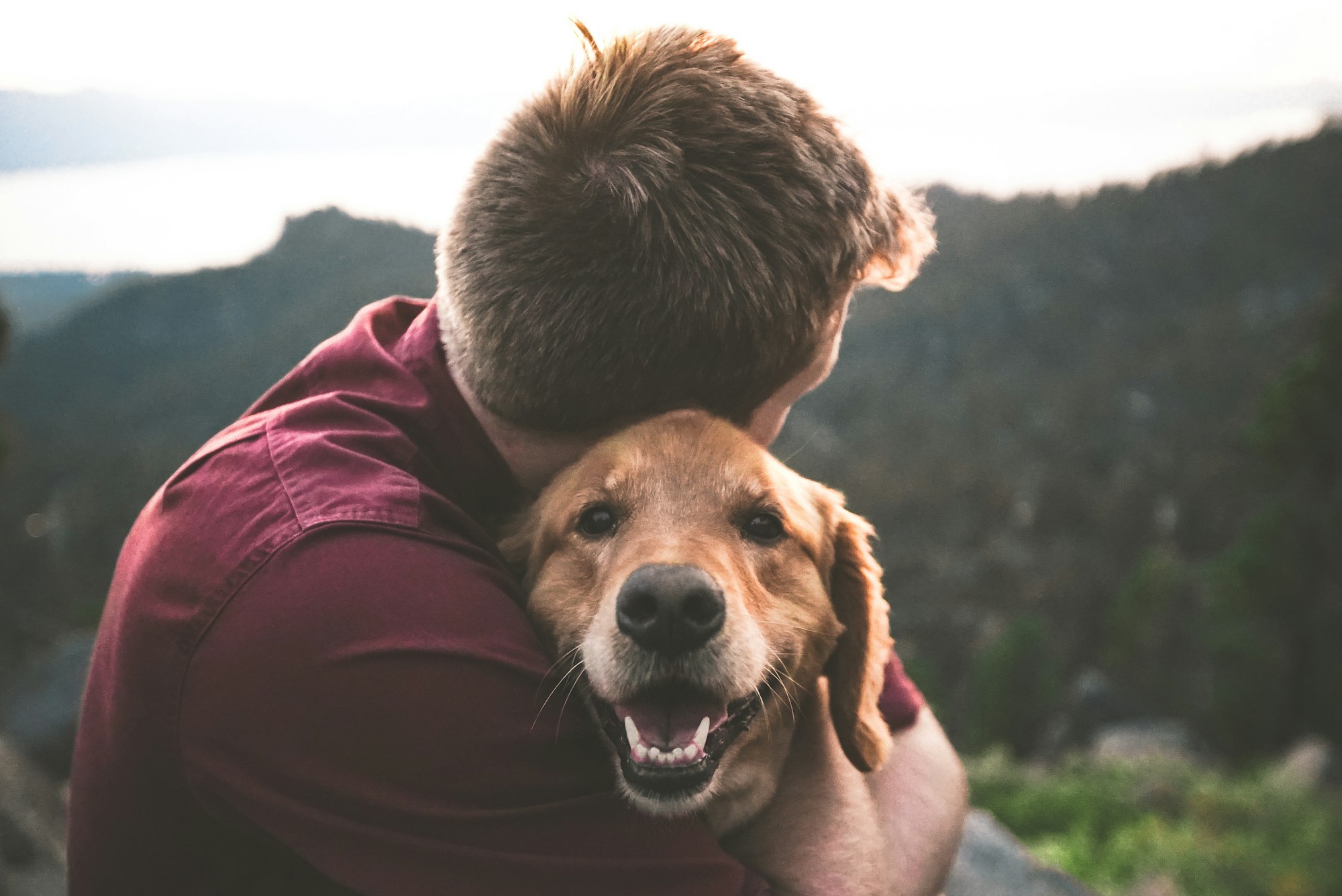Rescuing a dog is a noble act that offers mutual benefits, bringing joy and companionship into your life while giving a shelter dog a second chance. This rewarding experience, however, requires careful consideration of several key factors. Providing a loving home to a rescue dog saves a life and helps reduce animal overpopulation, with the added benefit of gaining a loyal companion.

Before proceeding, it's crucial to be ready for the commitment, including the time for daily care, financial responsibilities for their well-being, and ensuring your lifestyle and home environment are suitable for a new pet. Choosing the right dog and preparing your home are essential steps, as is navigating the adoption process from reputable sources. The initial adjustment period is important for bonding and addressing any health or behavioral needs, ensuring a smooth integration into your family. With proper preparation, rescuing a dog can be a deeply fulfilling experience.
Key takeaways:
- Time commitment: Rescuing a dog requires a significant time commitment for feeding, exercise, grooming, and training. Ensure you have enough time to dedicate to your new furry friend.
- Financial responsibilities: Owning a dog involves costs for food, vaccinations, veterinary care, grooming, and supplies. It's essential to budget for these expenses to provide proper care.
- Lifestyle and living situation: Consider your lifestyle, activity levels, and living arrangements to ensure compatibility with the specific needs, size, and energy levels of the dog you plan to rescue.

Why Rescue a Dog?
Thinking about rescuing a dog? Wondering why it's a great choice? In this section, we'll unveil the reasons behind rescuing a dog that goes beyond providing a loving home. From saving a life to gaining a grateful companion, we'll explore the fulfilling benefits that come with choosing to rescue a dog. So, buckle up and get ready to discover the heartwarming aspects of bringing a furry friend into your life!
Important Things to Consider Before Rescuing a Dog
Thinking about rescuing a dog? Before diving in, there are some vital aspects to consider. You want to ensure you're fully prepared for the journey ahead. In this section, we'll explore the key factors that should be on your radar. From time commitment and financial responsibilities to your lifestyle and living situation, we'll cover it all. We'll also discuss the importance of home preparation and understanding potential behavioral issues. Get ready to equip yourself with the essential knowledge needed before taking that admirable step into dog rescue.
Time Commitment
Taking on the responsibility of rescuing a dog requires a significant time commitment. It is essential to carefully consider the time you can dedicate to caring for a dog before deciding to rescue one. Dogs demand regular exercise, feeding, grooming, and attention. Additionally, they need training and socialization to become well-adjusted companions.
Spending ample quality time with your dog is of utmost importance for their mental and emotional well-being. Prior to adopting a dog, assess your schedule and ensure that you possess enough time to devote to their care and happiness. Remember, adopting a dog is a lifelong commitment that demands both time and dedication.

Financial Responsibilities
When considering rescuing a dog, it's crucial to comprehensively understand the financial responsibilities that come with it. Here are some important factors to consider when taking on the responsibility of a furry friend:
- Adoption fees: Many rescue organizations impose an adoption fee to compensate for the costs associated with caring for the dog.
- Veterinary expenses: Routine check-ups, vaccinations, and unexpected medical costs can significantly impact your finances.
- Food and supplies: Dogs require high-quality nutrition, toys, bedding, and other essential items, which can add to your financial obligations.
- Training and grooming: Depending on the dog's needs, professional training or grooming services might be necessary, adding to the financial responsibilities.
- Emergency funds: It is crucial to allocate savings for any unforeseen emergencies or accidents that may arise.

Lifestyle and Living Situation
When considering rescuing a dog, it's crucial to take your lifestyle and living situation into account. These factors play a vital role in determining if owning a dog is a feasible option for you. Here are some key points to consider in this regard:
Space: Assess whether your home provides enough room for a dog to move around comfortably, especially if you reside in an apartment or have limited outdoor space.
Activity Level: Evaluate if you can meet the dog's exercise and mental stimulation requirements, given your work schedule and daily commitments.
Allergies and Sensitivities: Take into consideration any allergies or sensitivities that you or your household members may have. Certain dog breeds may be better suited for individuals with allergies.
Presence: Dogs are social animals and require companionship. Determine if someone will be available at home for extended periods during the day or if you can arrange for a dog walker or enroll your dog in daycare.
Pet Policies: If you rent or live in a community with specific pet policies, be aware of any restrictions, additional costs, or breed limitations.
Home Preparation
Home preparation is essential before bringing a rescue dog into your home. By taking the time to prepare, you can ensure a smooth transition for both you and your new furry friend.
- Dog-Proofing: Safeguard your home by removing hazards, such as toxic plants, small objects, and chemical cleaning products.
- Creating a Safe Space: Designate a quiet area in your home where your dog can retreat, relax, and feel secure. Provide a comfortable bed or crate.
- Essential Supplies: Stock up on necessary supplies such as food, water bowls, leash, collar, ID tag, toys, grooming tools, and a sturdy dog crate.
By following these steps, you can ensure that your home is ready to welcome your new rescue dog.
Understanding Behavioral Issues
When considering rescuing a dog, understanding the potential behavioral issues that may arise is essential. It is crucial to have a realistic understanding of these challenges and be prepared to invest time and effort into training and rehabilitation. Dogs in shelters may have experienced trauma or neglect, leading to various behavioral challenges such as fearfulness, separation anxiety, aggression, or difficulty with house-training. Seeking professional help from trainers or behaviorists can provide valuable guidance in addressing these issues. By being knowledgeable and patient, you can offer the support and care needed to help your rescued dog overcome behavioral challenges and thrive in their new home.
Where to Find Rescue Dogs
Looking to add a furry friend to your family? Let's explore the best places to find rescue dogs! We'll dive into animal shelters, where you can support local organizations and potentially meet your future companion. We'll also discover the world of rescue organizations, dedicated to rescuing and rehoming dogs in need. And for the tech-savvy folks, we'll explore online platforms that connect rescue dogs with loving homes. Get ready to embark on a heartwarming journey and find your perfect canine companion!
Animal Shelters
Selecting a reputable animal shelter is crucial when looking to rescue a dog. Here are some options to consider:
- Local animal shelters: These animal shelters provide temporary housing and care for abandoned or neglected animals.
- Rescue organizations: These organizations specialize in rescuing and rehoming specific dog breeds or types.
- Online platforms: Websites and apps connect potential adopters with dogs available for adoption.
It is important to visit the animal shelter or organization in person, ask questions about the dog's history and behavior, and ensure that they provide proper medical care and socialization for their animals. By choosing a reliable animal shelter, you can make a positive impact in a dog's life. Did you know that animal shelters also offer various adoption events throughout the year to help find loving homes for their rescued dogs?
Rescue Organizations
Rescue organizations play an essential role in the process of finding forever homes for dogs in need. These organizations provide a secure haven and offer necessary medical care for abandoned or neglected dogs, aiding in their physical and emotional recovery. In order to cover the costs of food, shelter, and veterinary care, these rescue organizations heavily rely on dedicated volunteers and generous donations.
By choosing to adopt from a rescue organization, not only do you save a precious life but you also actively contribute to breaking the cycle of overpopulation. Notable examples of renowned rescue organizations include the ASPCA, the Humane Society, and local animal shelters. Thanks to the unwavering efforts of these organizations, countless dogs have been able to find loving homes.
The Adoption Process
Thinking about adopting a furry companion? Let's dive into the exciting journey of the adoption process. From conducting thorough research to submitting an application and going through screening, to finally meeting the dog and having a home visit, this section explores the steps involved in adopting a rescue dog. Get ready to embark on this heartwarming adventure and find the perfect companion who will bring joy and love into your life.

Application and Screening
Before adopting a rescue dog, the application and screening process is an essential step to ensure that the dog finds a suitable and loving home.
- The application: Prospective adopters are required to fill out an application form that includes details about their lifestyle, experience with dogs, and their preferences.
- Background check: Rescue organizations may conduct reference checks with veterinarians and personal references to verify the applicant's suitability as a dog owner.
- Home inspection: Some rescue organizations may conduct home visits to assess the living environment, ensuring it is safe and suitable for the specific dog.
- Interview: In-person or phone interviews may be conducted to further assess the applicant's commitment, knowledge about dog care, and willingness to provide proper training and socialization.
- Adoption screening: Rescue organizations may have specific criteria for adoption, including compatibility with other pets and potential owners' ability to provide the necessary care and attention.
Preparing Your Home for a Rescue Dog
Before you bring home your new furry friend, it's crucial to prepare your home for a rescue dog. This section will guide you through the steps of dog-proofing, creating a safe space, and gathering the essential supplies. From securing hazardous items to providing a cozy haven, we'll ensure that your home is ready to welcome your rescue dog with open arms. So let's dive in and make your space the perfect sanctuary for your four-legged companion!
What to Expect After Rescuing a Dog
After rescuing a dog, what should you expect? Buckle up for an adjustment period, a journey of building trust and bonding, addressing health concerns, and the essential training and socialization. Your new furry companion will bring joy, challenges, and endless love into your life. Prepare to embark on this remarkable adventure and create a lifelong bond with your rescued dog.
Adjustment Period
When you rescue a dog, it's important to understand that there will be an Adjustment Period as the dog settles into their new home and routine.
- Allow time: Give your dog time to adjust to their new environment and establish trust. This may take a few days or even a few weeks.
- Create a routine: Establish a consistent daily routine for feeding, exercise, and potty breaks. This will help your dog feel more secure and comfortable.
- Provide a safe space: Set up a designated area where your dog can retreat to when they need some quiet time or feel overwhelmed.
- Patience and consistency: Use positive reinforcement and be patient with your dog as they learn the rules and boundaries of their new home.
- Offer love and reassurance: Shower your dog with love, affection, and reassurance to help them feel safe and secure.
Building Trust and Bonding
Creating a strong and lasting relationship with a rescue dog requires building trust and bonding. Here are some essential strategies to naturally foster trust and develop a strong bond with your new companion:
- Patience: It is important to understand that the dog may have experienced past traumas, so it may take time for them to adapt to their new environment and trust you.
- Consistency: Maintaining a consistent routine and providing a stable environment will help the dog feel secure.
- Positive Reinforcement: To encourage good behavior and establish a positive association with you, use rewards, treats, and praise.
- Bonding Activities: Engage in activities such as walks, playtime, and training sessions to foster trust and strengthen your connection.
- Respect Boundaries: Give the dog space when needed, allowing them to set boundaries and avoiding forcing interactions.
By implementing these strategies, you can lay the foundation of trust and develop a strong bond with your rescue dog.

Training and Socialization
Training and socialization play a crucial role in ensuring the well-being and successful integration of a rescue dog into a new home. Follow these steps to help in the process:
- Step 1: Begin by enrolling in obedience classes to establish basic commands and improve their training skills.
- Step 2: Facilitate the socialization of your dog by introducing them to a variety of people animals
- Step 3: Employ positive reinforcement techniques such as using treats praise
- Step 4: Offer mental stimulation through puzzle toys and interactive games to engage your dog's mind.
- Step 5: Seek professional assistance if your rescue dog demonstrates behavioral issues that require specialized training.
Conclusion:
In conclusion, rescuing a dog is an act of compassion that not only transforms the life of an animal in need but also enriches your own life with unconditional love and companionship. It's a journey that demands commitment, patience, and understanding as you navigate the challenges and rewards of welcoming a rescue dog into your heart and home.
By considering the key factors outlined in this article—such as the time commitment, financial responsibilities, and lifestyle adjustments—you are better prepared to provide a nurturing environment for your new furry friend. Embracing the adoption process with an open heart and mind paves the way for a fulfilling relationship built on mutual respect and love.
Remember, the joy of rescuing a dog extends beyond the initial adoption; it's about the ongoing journey of care, training, and bonding that creates a lasting impact on both your lives. By choosing to rescue, you're not just saving a life; you're embarking on an enriching adventure that highlights the power of empathy, the importance of second chances, and the profound bond between humans and their canine companions.
FAQs
- What should I consider before rescuing a dog?
- Before rescuing a dog, consider your lifestyle, living situation, and ability to commit time and financial resources to care for a pet. Evaluate your home environment, daily schedule, and whether you're prepared for the long-term commitment of dog ownership, including providing for their exercise, training, health care, and emotional needs.
- How much does it typically cost to rescue a dog?
- The cost of rescuing a dog can vary widely depending on the adoption fees set by the shelter or rescue organization, and the initial veterinary care the dog may require, such as vaccinations, spaying/neutering, and microchipping. Additionally, budget for ongoing expenses like food, grooming, routine veterinary visits, and emergency health care. On average, initial costs can range from $50 to $500, with ongoing monthly expenses.
- How do I choose the right dog for my lifestyle?
- Consider your living situation, activity level, and the time you can dedicate to a pet. Research different breeds and their needs to find a match for your lifestyle. Visit local shelters or rescue organizations to interact with dogs, and consult with shelter staff who can provide insights into a dog's personality and needs to ensure a good match.
- What is the adoption process like?
- The adoption process typically involves filling out an application, undergoing a vetting process that may include a home visit, and meeting potential dogs. The process is designed to ensure a good fit between the dog and their new family, and can vary in length from a few days to several weeks, depending on the organization's policies.
- How can I prepare my home for a rescue dog?
- Prepare your home by dog-proofing to remove hazards, setting up a comfortable space with a bed and toys, and stocking up on necessary supplies like food, water bowls, a leash, and grooming tools. Introduce your new pet to their new home gradually, allowing them to adjust at their own pace.
- What behavioral issues should I be aware of with rescue dogs?
- Rescue dogs may exhibit behavioral issues stemming from their past experiences, such as anxiety, fearfulness, or aggression. Be prepared to invest time in training and socialization, and consider seeking professional help from a trainer or behaviorist to address and manage any issues.
- How can I ensure a smooth transition for my rescue dog?
- Ensure a smooth transition by maintaining a consistent routine, being patient and offering plenty of positive reinforcement. Spend quality time bonding through play, walks, and training. Be attentive to your dog's needs and provide a safe, loving environment to help them feel secure in their new home.




